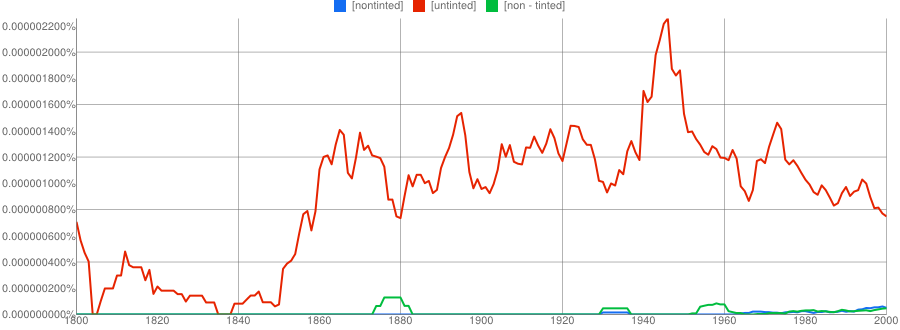Related forms
nontinted, adjective
overtint, verb
overtint, noun
retint, verb (used with object)
untinted, adjective
Source: http://dictionary.reference.com/browse/untinted?s=t
One un- is added to verbs to indicate the reversal of an action:
Non- is added to nouns that imply some “action, condition, or quality.” The addition of “non-” has the sense of “absence or lack of”: Ex. non-standard.
Source: http://bottomlineenglish.com/when-to-use-the-negative-prefixes-un-and-non
Question:
In the following would un-tinted or non-tinted be the correct use, and preferably an explanation why. It seems like non-tinted is the better description based on the BottomEnglish explanation but I'm not sure. Un- seems to imply the act of removing a tint, Non- just means lacking a tint. To me it's easy to think "That window was just un-tinted by the mechanic." While "The car for sale has non-tinted windows."
While on non-tinted windows the sticker is barely visible.
While on un-tinted windows the sticker is barely visible.
Am I correct understanding that non-tinted is the better use in this sentence?

